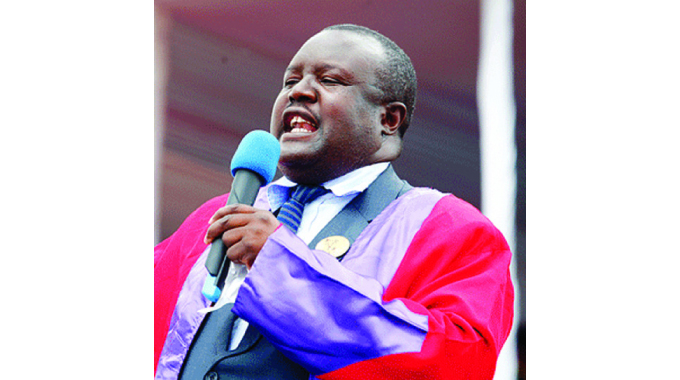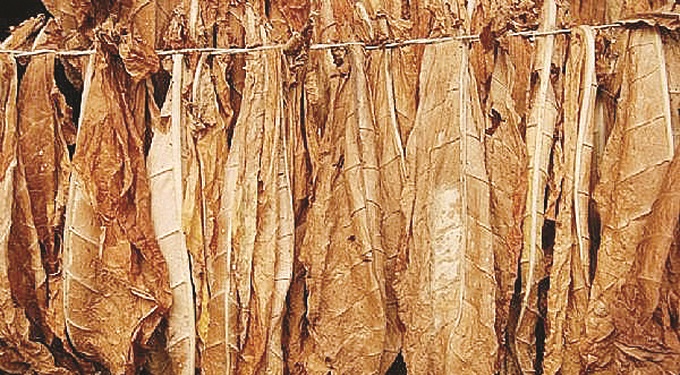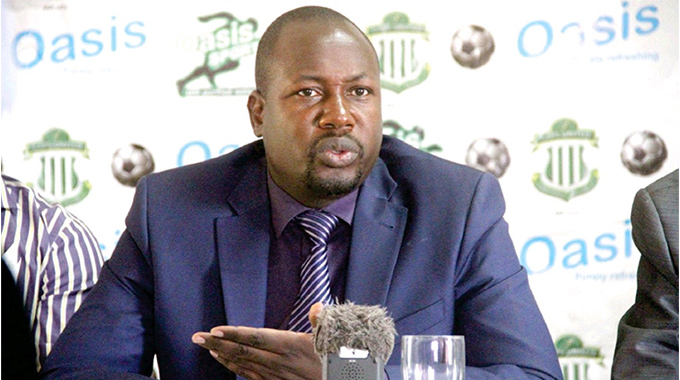Chiefs conduct last-batch training for Gukurahundi hearings

Sikhumbuzo Moyo
THE National Council of Chiefs has completed the training of 144 rapporteurs and is now focused on training the last batch of the hearings’ committee as preparations for the commencement of Gukurahundi public hearings gather momentum.
The National Chiefs Council will now be training 14 support members per chief from each district, beginning with Gwanda District in two weeks’ time, Zimbabwe National Chiefs Council president, Chief Fortune Charumbira, has said.
In an interview on the sidelines of the burial of 96-year-old Chief Zephania Sigola at Esiphezini farm on Friday last week, Chief Charumbira said they were readying for the public hearings.
Since coming into power in 2017 President Mnangagwa has publicly declared that the 1980s disturbances be discussed freely and went on to initiate meetings with traditional leaders, especially from the Matabeleland and Midlands regions, in an effort to resolve the dispute that arose from the sad chapter in the country’s history.
The training of the rapporteurs and support staff is part of the preparations for public hearings that are likely to be highly tense and emotional. The National Peace and Reconciliation Commission is working closely with chiefs to ensure post-conflict justice, healing, and reconciliation, including developing programmes that promote national healing and peaceful conflict resolution.
“After the training of the 144 rapporteurs, there will be 14 panel members that will support the chief during the collection of the information,” said Chief Charumbira.
“We will have councillors who will sit with the chiefs during the hearings. So, after the initial training of rapporteurs, we invited these other panel members for training and that is very important.
“What is also important for the nation to know is that the training of the chiefs’ panel has started and next week, we will be in Gwanda District to conduct the training for the 14-panel members, and from there we will go to the next district.”
Chief Charumbira said the process was not an overnight issue especially when looking at the numbers of panel members to be trained.
“After rolling in all the districts, our panel members will now be ready to handle the conflict victims when they appear before them. The hearings will naturally be highly charged as some victims may collapse, some may become emotional, cry so the panel members must be able to handle all those situations,” he said.
Chief Charumbira said the actual hearings will start soon after the process of training the panel members has been completed.
“The whole objective of these hearings is to give an opportunity to victims or people who would want to make claims as a result of Gukurahundi. It’s an opportunity for families, and individuals to present to the chief, supported by the panel members, what exactly happened and what claim or compensation,” he said.
“The victims would engage the panel on various issues about the conflict because indeed, as a result of those disturbances many opportunities were lost and there is a need for compensation, which of course will be material because a life lost cannot be replaced.”
A budget has been presented to the Treasury and is awaiting approval, said the chief.

Chief Fortune Charumbira
The Gukurahundi community hearing programme was launched by President Mnangagwa and is in sync with the national cohesion processes that started when the Unity Accord was signed on December 22, 1987. The Unity Accord brought together Zanu-PF and PF-Zapu under the banner of Zanu-PF.
The former late President Cde Mugabe and Father Zimbabwe, the late Vice-President Dr Joshua Nkomo signed the agreement, ending the post-independence Gukurahundi conflict.
While the signing brought a political solution in the country, Gukurahundi left a lot of scars, particularly in Matabeleland and some parts of Midlands province. Upon assuming power, President Mnangagwa declared that the country needs to confront its dark past by taking a bold step towards finding a lasting solution and fostering national unity for the healing of the victims.
He initiated engagements with civil society organisations under the banner Matabeleland Collective to address challenges in the region. -@skhumoyo2000












Comments